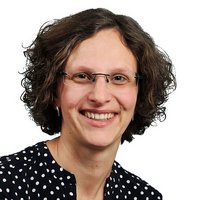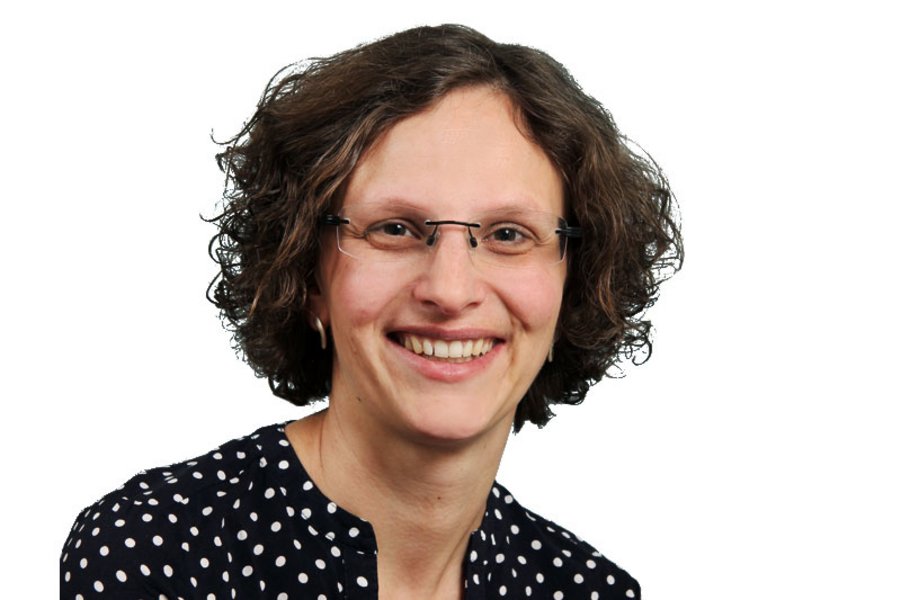When treating cancer patients, highly networked teams from a wide range of professions work together in hospitals. Patients should receive the best possible care. This interdisciplinary collaboration is therefore accompanied by reliable documentation of the cases. Tumor documentarian Nicole Söll explains why this is important in an interview.
Digital data: It has even been called the currency of the future. It increasingly determines how modern companies operate in their environment. Collecting and analyzing digital data is becoming increasingly important. Patterns can be identified from digital data—and lessons can be learned from them. This is also changing medicine.
Different roles
Nicole Söll is a medical documentarian or «clinical data manager». At the Department of Neurosurgery, she specializes in, among other things, collecting and presenting data on brain tumor patients. As a tumor documentarian, she collects all data related to a tumor and compiles it in a dossier for a cancer patient.
This can be study documentation if the person is participating in clinical trials, or correspondence between general practitioners and the clinic, or it can be receipts, findings, doctor's reports—in short, everything related to the treatment and care of cancer patients.
Her role? Nicole Söll is a police officer, teacher, librarian, and programmer all at once. She enters the data into the database and ensures that the tumor documentation is complete, accurate, and comprehensive. She also organizes all the data according to patterns, rules, and criteria. In addition, she is a database programmer who can tweak the code.

My goal is to improve the quality of patient care. High-quality descriptions of cancer cases serve several purposes.
Facilitating collaboration
Firstly, tumor documentation must facilitate collaboration: Cancer treatment involves highly networked teams from a wide variety of professions working together. They need precise, unambiguous agreements between themselves. The various treatment steps must be documented accurately.
Research
Tumor documentation also answers all kinds of questions: What surgical method was used, what was removed, and how? Was it a new tumor or a recurrence? How was the tumor characterized? What therapies did the patient receive? Did she participate in clinical trials? Tumor documentation also provides data that can be used for clinical research.
Quality control
Sometimes tumor documentation can warn of errors. Nicole Söll calls it an early warning system. «For example, I can quickly see if a case has not been presented to the tumor board (see sidebar on the right). I then ask the tumor board team what the reason for this is.»
The brain tumor center is regularly checked for quality by a neutral body. Nicole Söll provides the key figures for this, which must stand up to comparison with other tumor centers in German-speaking countries. She also exchanges information with colleagues from other Swiss tumor centers three to four times a year.

Faster
They share the common goal of making data collection easier. «We want to make the work of the treating specialists easier», says Nicole Söll. And it should also be much faster. Today, tumor documentarians in some places still work with outdated structures such as databases that are not networked with each other or are insufficiently linked to the hospital information system. «I sometimes have to compare or update data by hand.»
Nicole Söll has been working at Inselspital since 2009. «Back then, each department maintained its own small databases or Excel spreadsheets and recorded data at its own discretion.» She is experiencing the change in the handling of digital data firsthand: «More and more is being documented. The importance of data – and also the interest in it – has increased enormously.»
About
Nicole Söll trained as a medical documentation assistant or clinical data manager in Germany from 2001 to 2004. This was a time when social networks did not yet exist and the 3G mobile phone standard was just emerging. She moved to Switzerland in 2009 and has been living in the city of Bern ever since. In her free time, she enjoys cycling and skiing in the mountains. During the summer months, she goes backpacking, «difficulty level T2 on the SAC hiking scale.»
Text: Peter Rüegg, University Comprehensive Cancer Center Bern
Related Links
- University Comprehensive Cancer Center Inselspital (UCI)The Cancer Center Bern is a leading Swiss center for the diagnosis and treatment of tumors. Patients with cancer will find a wide range of individually tailored treatment options here. They are cared for by highly specialized teams in twelve organ centers.
- Tumor BoardTumor boards are meetings of experts from various fields who specialize in the treatment of tumors. Each patient is discussed within the framework of such a specialized tumor board—and thus receives the best possible recommendation for diagnostic or therapeutic procedures tailored to them and their disease.

